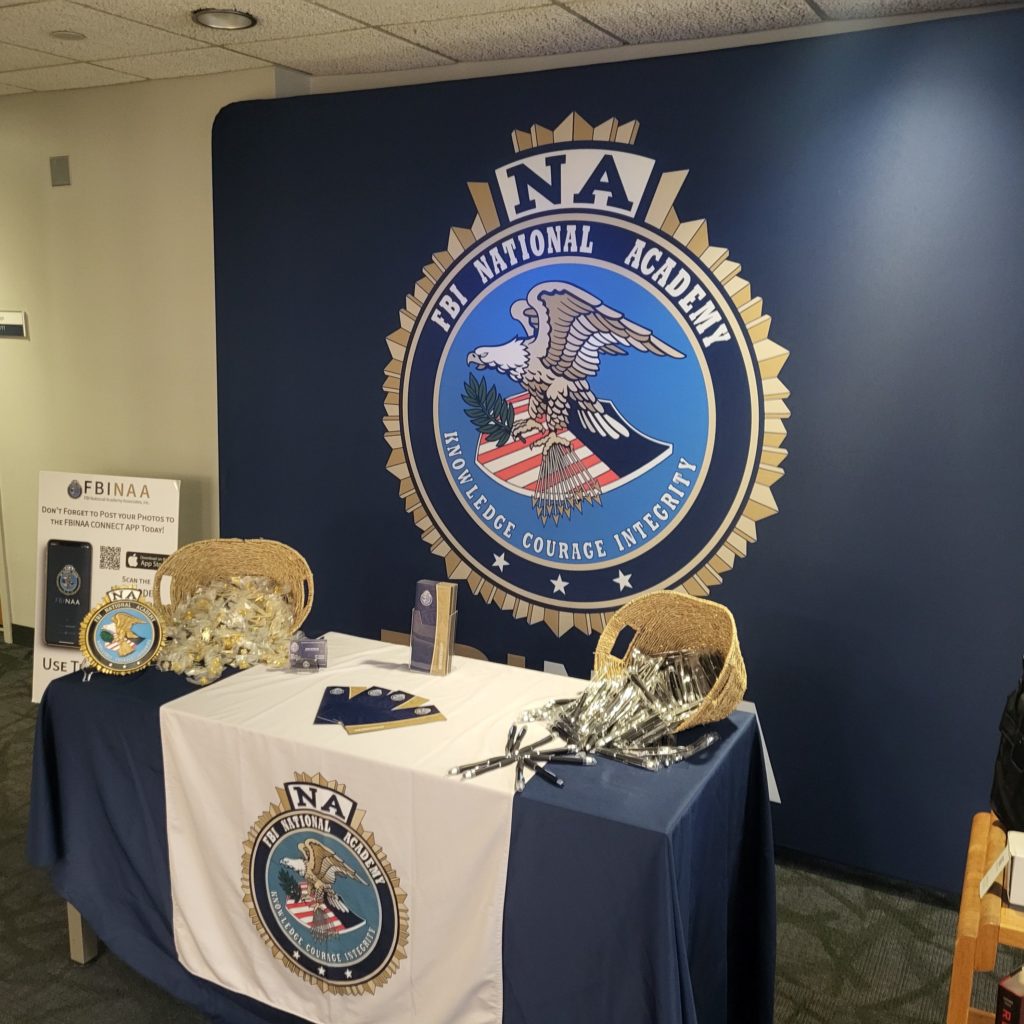Copper, air bags and catalytic converter thefts, to name a few, have put some recycled materials facilities into a precarious situation. What can compound these issues is law enforcement officers that are unfamiliar with the metal theft laws and need some ideas for crime prevention techniques.
Recently, ISRI attended the FBI National Academy Associates class. Established in 1935, the National Academy provides advanced investigative, management, and fitness training to senior officers who are proven leaders within their organizations.
I sat down with Todd Foreman, ISRI’s director of law enforcement outreach, to learn more about the event and ISRI’s partnership with law enforcement.
Can you give a bit of background to the FBI National Academy Associates and ISRI’s role with them?
The FBI National Academy is one of the top leadership schools in law enforcement. Only 1% of law enforcement go to the academy. All the members are mid-management (most will eventually be chief of police or a sheriff) to chiefs of police. Since it started, about 53,000 people have attended it. The National Academy Associates has strategic alliance partners it works with and ISRI is a strategic alliance partner.
The session for the FBI National Academy is ten weeks long. Strategic partners show up about a month before they’re ready to graduate from it. While I’m there, I talk to the members of the session. It’s a really good opportunity for us to meet and talk to mid-level officers from police departments and sheriff offices and build those relationships with them so that we can start building relationships between their departments and our members. I’m getting access to a thousand mid-level to chiefs of police and mid-level sheriff’s department members every four months.
There are four sessions a year and each session has about 250 students in it from all over the U.S. and about 1% are from other countries around the world. When I attended as an academy member, we had people from Germany, France, Thailand and China.

You attended as a member of the academy and now you’re representing ISRI?
Yes, I attended when I was in law enforcement and now, I represent ISRI. So, I have experienced the same education and fitness. The strategic alliance partners get to go meet with all of the new members. We get to set up our table, displays, give stuff away, and then talk to each of the new academy members. Right now, about 16,000 police officers are members of the National Academy Association.
We get to talk to each one of them and describe what services we provide, what we can do for them. I get to talk about Scrap Theft Alert, what we can provide to help them build relationships with their local recyclers, talk about our members wanting to have a facility tour with their local law enforcement.

You’ve touched upon this but what benefit does this provide to members and the industry as a whole?
We’re doing it to build a relationship between our recyclers and law enforcement. ISRI members get access, through me, to the 16,000 members of the FBI National Academy. I can call someone from the academy and reach out to them and have access to them.
They’re automatically looking at me, as a graduate and we have an automatic relationship, as they’re coming through, and learning how they can benefit from my work at ISRI to help them in their process. The best part about it is ISRI doesn’t charge for anything we provide for law enforcement. It gives us the opportunity to show the people that are new coming through the academy who are going to be in leadership positions or are already in leadership positions things such as scraptheftalert.com and stopmetalstheft.org.
We’ve recovered $3.3 million worth of property with Scrap Theft Alert since it started. I get to show them that and how it can benefit them as a law enforcement agency. I have conversations with them about how they can look at it to help figure out where thefts are occurring and how they can help stop them. So, it’s all those conversations go on during the meeting. I probably talked to at least half the class because the booth was very busy, and it was a very interactive group of people coming and talking and trying to figure out exactly what was happening and what we were doing.

I have several people that are going to be reaching out to me about things in their community that they wanted help with. Such as a situation where an academy member in New York, he suspects that catalytic converters being sold in Pennsylvania were stolen in New York. I’m able to go up there and maybe build the relationships between law enforcement and recyclers and do some training for those law enforcement officers teaching the laws for both states so that they can understand what the laws are in New York and what the laws are in Pennsylvania.
The other benefit is that I can reach out to those departments and if somebody is working on some laws within that state, we can work together to make sure the laws meet what law enforcement wants and what the recycling side wants. We can work together to make sure the legislation is working for both sides because they don’t always understand the recycling side and recycling doesn’t always understand the law enforcement side. When we have those conversations, it helps build that communication between law enforcement and recyclers, making relationships stronger.

Photos courtesy of Todd Foreman.










